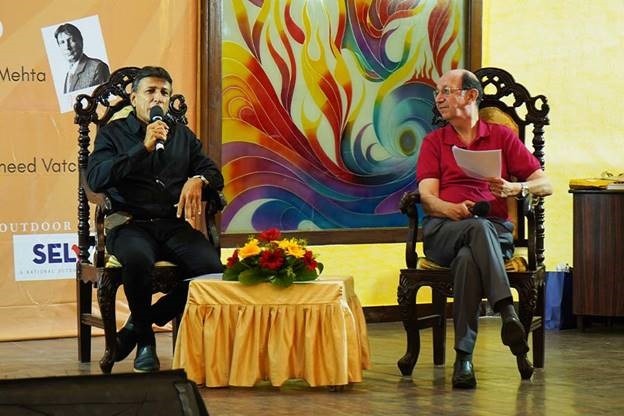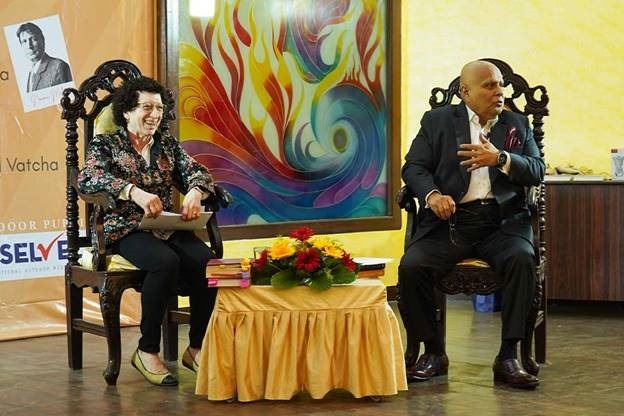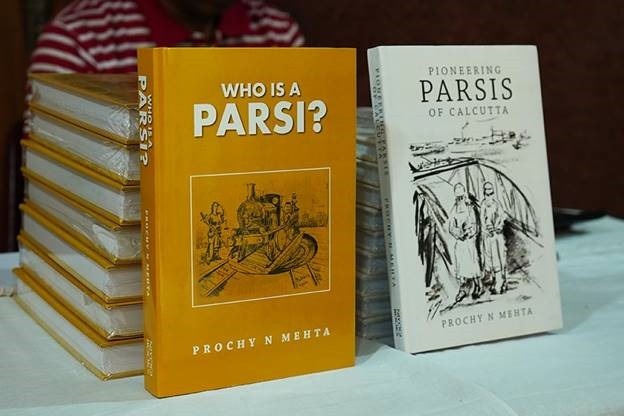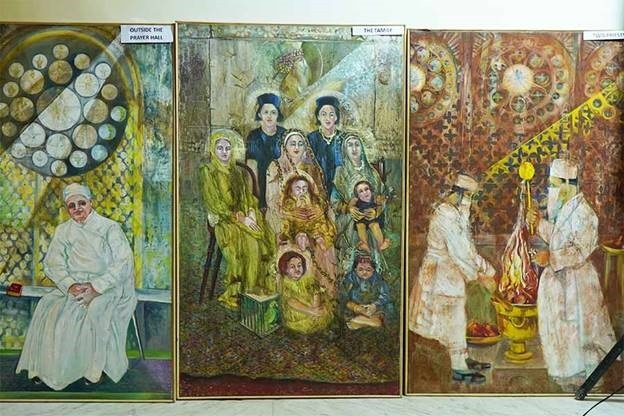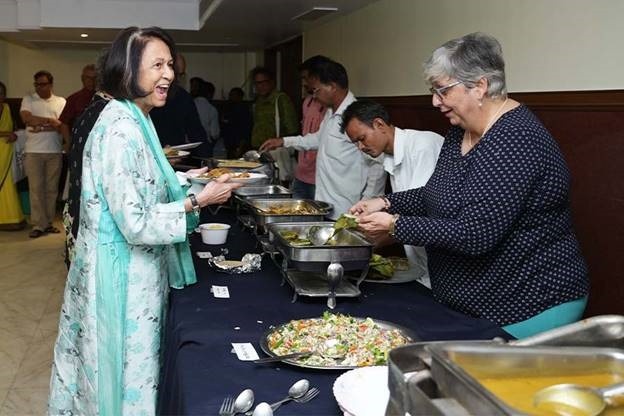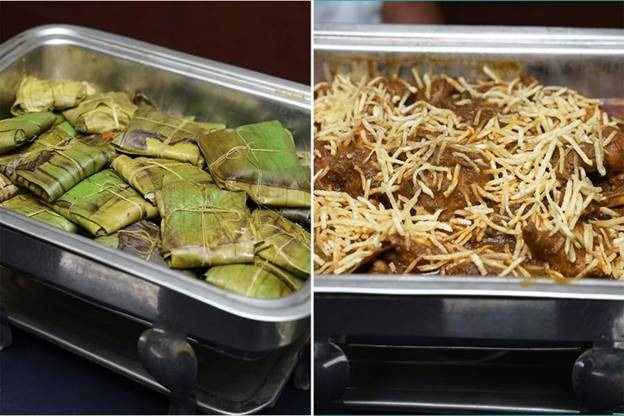Own the Past brought the Parsi community of Kolkata together to celebrate their legacy, culture and food ahead of Navroz
Jaismita Alexander | Telegraph India
Noomi Mehta and Cyrus Madan, prominent figures in Kolkata’s Parsi community, regaled the audience with humorous anecdotes
All photos by Upama Dutta
Who is a Parsi? What is their history? All this and more unravelled at the Bawa Bhonu & Gupshup event held as a prelude to Navroz, on March 17. At Olpadvala Memorial Hall, the Parsi community in Kolkata gathered along with a few history enthusiasts to discover more about the legacy, culture and food of the Parsis in Kolkata.
Organised by Vibha Mitra’s Own the Past, a city group of history and heritage enthusiasts, the event was focused on reviving conversation. Own the Past is a gurukul vertical in Mitra’s OPUS Foundation Trust, which focuses on immersive learning about history.
Exploring the question, ‘Who is a Parsi?’
Prochy N Mehta in conversation with (right) Yezdi Karai about her book
The evening unfolded with philanthropist, sportswoman and author Prochy N. Mehta engaging in a conversation with Yezdi Karai about her book Who is a Parsi? It was a detailed introductory session on the community and its roots. Speaking about the book, Yezdi Karai asked the author, “This book is a research text. A book like this doesn’t happen overnight. It requires a copious amount of research. Take us through the journey of the book — from writing the very first page to the day of publication.” Answering the question, Mehta spoke about the journey and her motivation behind writing the book. She said, “I decided to write the book around 2012, when my grandchildren faced discrimination. That’s when my quest to find out who is a Parsi began. I found out that many of the stories that we have heard are just myths. Finally, during Covid, I put down all my research and sent it to Fali Nariman. I did not know him, but I just sent him asking if he could help me and if my research was correct.”
For her book ‘Who is a Parsi?’, Mehta recieved guidance from legal doyen Late Fali Sam Nariman
Late Fali Sam Nariman, legal doyen, a prominent constitutional lawyer, who was 90 then, went through the book and corrected it by hand and gave his valuable advice to Mehta. “He added judgments to the book and helped me with the constitutional way forward to the equality of the community,” she said.
Addressing the question – ‘Who is a Parsi?’ – Prochy N Mehta said, “There’s no definition of a Parsi. Some say religion, some say caste, some say the way we look, some define us by our mannerisms and the food we eat. But there’s no fixed definition and the book addresses why.”
Yezdi Karai said, “The acid test of a book is when it is accepted in the field of education. I am glad to inform you all that the book has been included in St. Xavier’s University’s school of philosophy and religion. Also, the book is a research text in the School of Oriental and African Studies in London.”
The conversation flowed into various anecdotes and historical facts about the community and its lineage. A music video, ‘To Parsi girls we’ll wrong no more’, was also screened featuring Samara Mehta Vyas, who is a singer and the granddaughter of Prochy Mehta. The lyrics capture the key message of Prochy N Mehta’s book.
Little touches at the venue like artworks by Katayun Satlak that were on display celebrated Parsi culture
Chuckles and chit-chat
Two stalwarts of the Parsi community in Kolkata, Noomi Mehta, chairman of the Selvel One group, and Cyrus Madan, former chairman of Royal Calcutta Turf Club, took the stage to share some funny stories from the community. Opening the fun banter, Cyrus Madan said, “Parsis tend to be a little eccentric. You can’t help that! You are so brilliant that you cannot help being eccentric!”
Taking over the conversation, Noomi Mehta shared his experience with what people think about the Parsis. He said, “Once I asked my friends as to what are the characteristics they think of when they think of a Parsi. They said that it was loyalty and eccentricity. I’m leaving out the eccentricity for now, but when it comes to loyalty, we are still loyal to an oath — a promise we made but we aren’t sure what the promise was!”
The duo also discussed the story of the lives of prominent Parsis like Edulji Olpadvala of the 20th century, after whom the Olpadvala Memorial Hall was named. They also shared funny stories about their friends and family.
Bhonu to conclude the evening
No Parsi gathering is complete without ‘bhonu’ or feasting
When Parsis gather, there must be food! The evening rolled into a night of culinary extravaganza. And there was much more than Dhansak. The buffet of Parsi cuisine had dishes like Patrani Macchi, Parsi Stew, Sali Marghi, Mutton Dhansak and rice and Mitthu Dahi. The buffet was catered by Khurshid Vatcha, who is known in the Parsi community for her food.
A haft-sheen table was laid out by Sanam Karai to offer a glimpse of a Navroz tradition followed at Parsi homes. Artworks on canvas by Parsi stained-glass artist Katayun Satlak were on display too.
Post the event, Vibha Mitra, the mind behind the initiative said, “It was a wonderful event. That’s what everyone who joined in told me. It was educational and enriching with all the speakers sharing their thoughts and knowledge. We plan to do more such events like this to revive the legacy and conversation about the heritage of Kolkata.”
On the menu were classic Parsi dishes including Patrani Machchi and Sali Margi
Courtesy Own the Past

